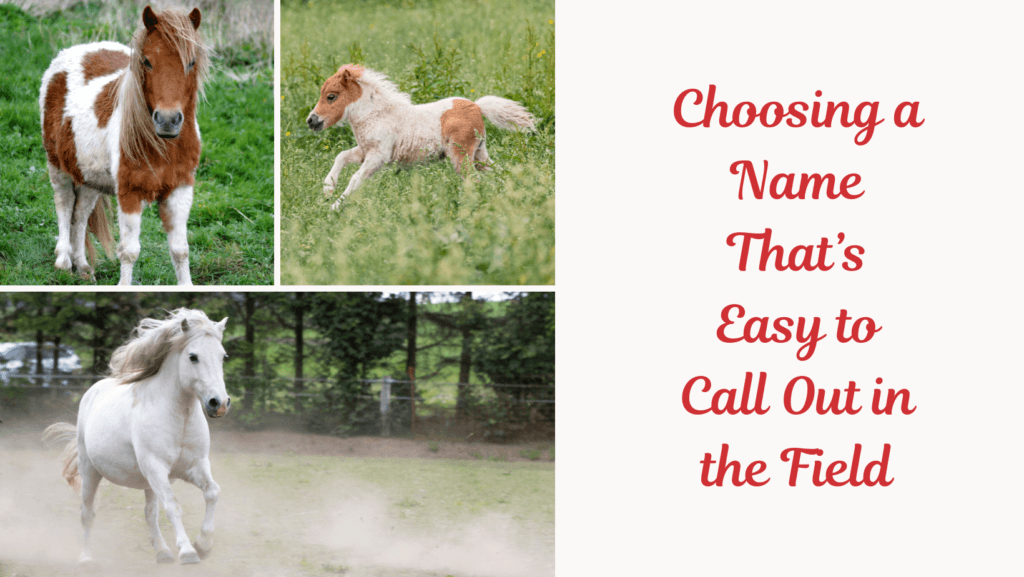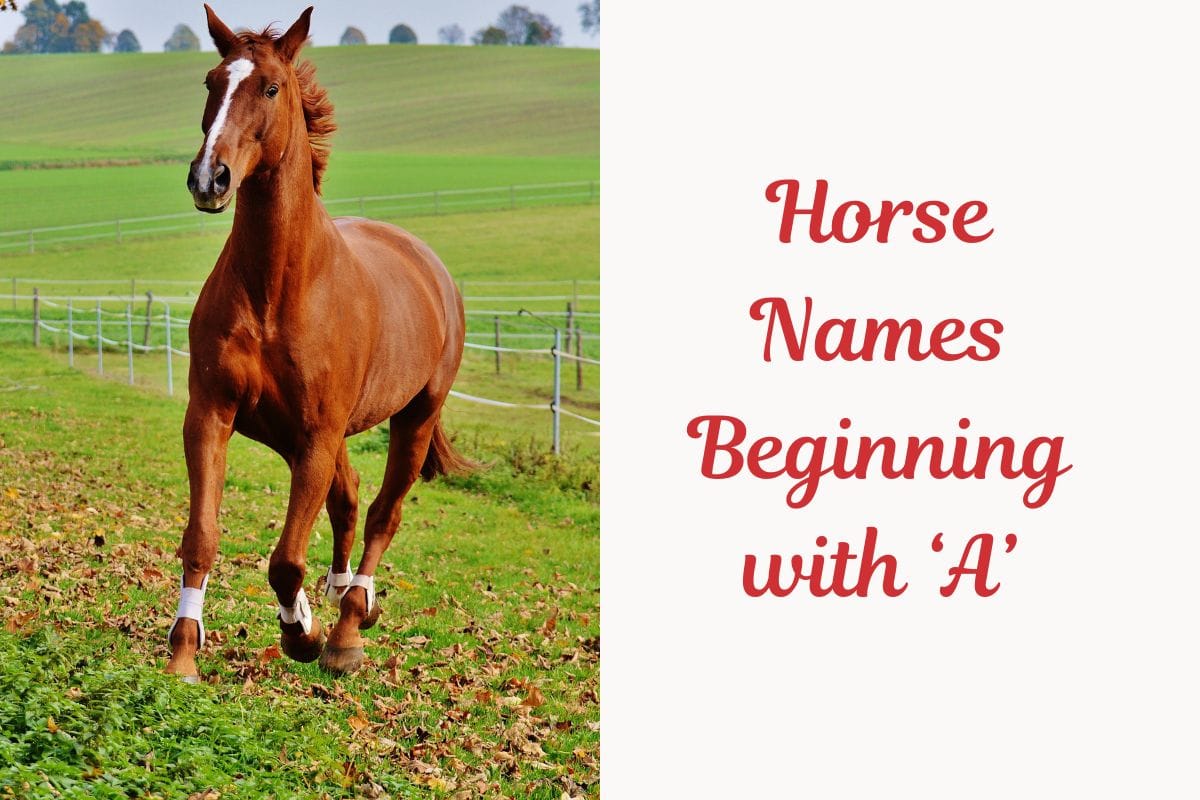Choosing a Name That’s Easy to Call Out in the Field

When it comes to naming your horse, practicality matters as much as creativity. A name might look fantastic on paper, but if it’s hard to call out in a field or during training, it’s not as useful as it could be.
Here, we’ll walk you through why it’s important to choose a name that’s easy to call out, factors to consider, and tips for selecting a name that works well in real-life scenarios.
Why Ease of Calling Matters
In the field, a horse’s name isn’t just a label; it’s a tool for communication. Whether you’re calling your horse from across a pasture or giving commands during a riding session, a name that’s easy to say and hear is invaluable.
For example, imagine you’re in a large, windy pasture, and you need your horse to come to you. A simple, clear name like “Max” or “Bella” is far more effective than a long, complicated one like “Chrysanthemum” or “Beauregard.” These names might be elegant, but they’re harder to project and for your horse to recognize.

Factors to Consider
1. Length of the Name
Short names are generally easier to call out. A one- or two-syllable name is ideal because it’s quick to say and easy for your horse to associate with a command.
Examples:
- Good: Jack, Star, Finn
- Challenging: Alexandria, Ferdinand
2. Sound Clarity
Names with sharp, distinct sounds are easier to hear over distances and in noisy environments. Avoid names that sound like common commands (e.g., “Whoa” or “No”) as this can confuse your horse.
Examples:
- Good: Ace, Duke, Zara
- Confusing: Joe (sounds like “Whoa”), Nay (sounds like “No”)
3. Uniqueness
If you’re in a barn or training environment with other horses, it’s a good idea to pick a name that’s different from the names of other horses. This avoids confusion when multiple horses are being addressed.
Examples:
- Good: Rocket, Clover
- Overused: Buddy, Charlie (common in many stables)
4. Ease of Pronunciation
A name that’s difficult to pronounce might feel special, but it can be cumbersome to use. If you have to think twice about how to say your horse’s name, it’s not the best choice for practical use.
Examples:
- Good: Storm, Ruby
- Difficult: Eithne (pronounced “En-ya”), Siobhan (pronounced “Shi-vawn”)
Tips for Testing a Name
Before settling on a name, try these tests:
1. Shout the Name Out Loud
Stand at a distance and call the name as if you’re trying to get your horse’s attention. Does it roll off your tongue naturally? Is it loud and clear enough to be heard?
Example: If you’re shouting, “Lancelot!” repeatedly, it may feel awkward compared to “Lance!”
2. Use It in Commands
Practice saying the name with common commands like “Come, [Name]!” or “Whoa, [Name]!” This helps you determine if the name flows well and avoids confusion with training words.
3. Get a Second Opinion
Ask a friend or family member to call out the name. Their feedback can help you identify if it’s easy to say and hear.
Balancing Practicality with Creativity
While practicality is essential, there’s no need to sacrifice creativity. Many unique names can still be field-friendly. Consider names inspired by your horse’s appearance, personality, or heritage but keep them simple and sharp.
Creative Yet Practical Examples:
- Blaze (for a horse with a distinctive facial marking)
- Jet (for a fast or dark-colored horse)
- Sky (for a calm and serene horse)
Avoiding Common Pitfalls
- Overcomplicating Names: While “Seraphina” might sound poetic, it’s much harder to call out than “Sera.”
- Ignoring Nicknames: If you love a long or fancy name, consider its nickname potential. For example, “Alexander” can easily become “Alex.”
- Not Thinking Long-Term: A cute name for a foal might not suit a full-grown horse. Ensure the name will feel appropriate at all life stages.
Conclusion
Choosing a name that’s easy to call out in the field is about finding the balance between practicality and personality. A short, sharp name with clear sounds will serve you well in everyday interactions with your horse. By considering factors like length, sound clarity, and uniqueness, and testing the name in real scenarios, you’ll land on a name that’s not only meaningful but also functional. Happy naming!






